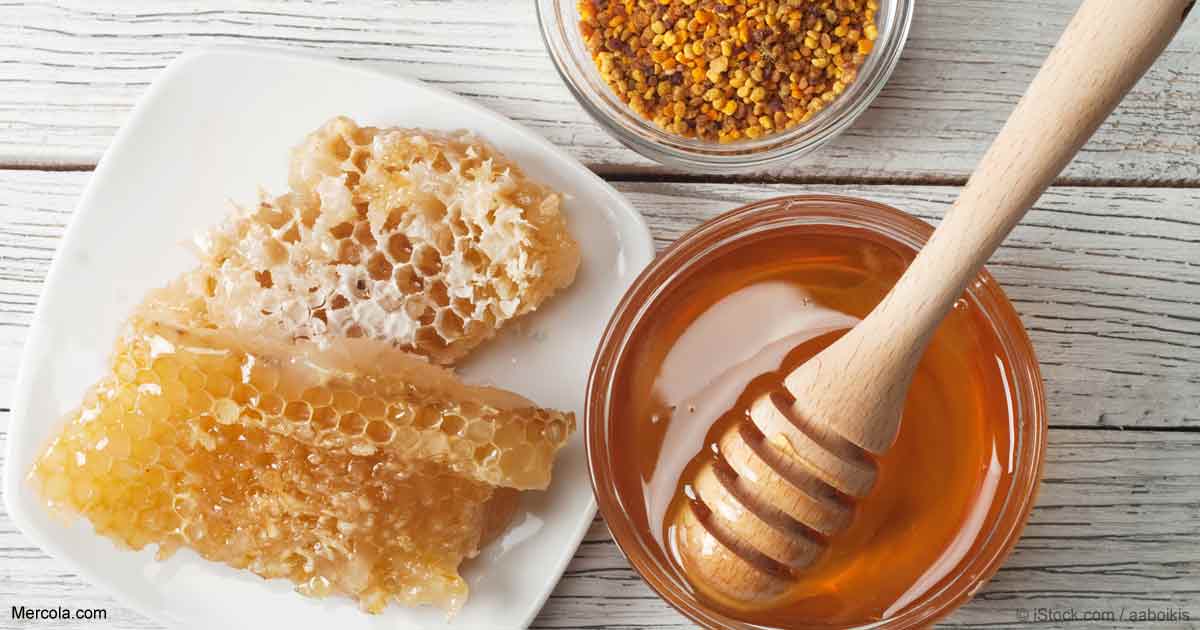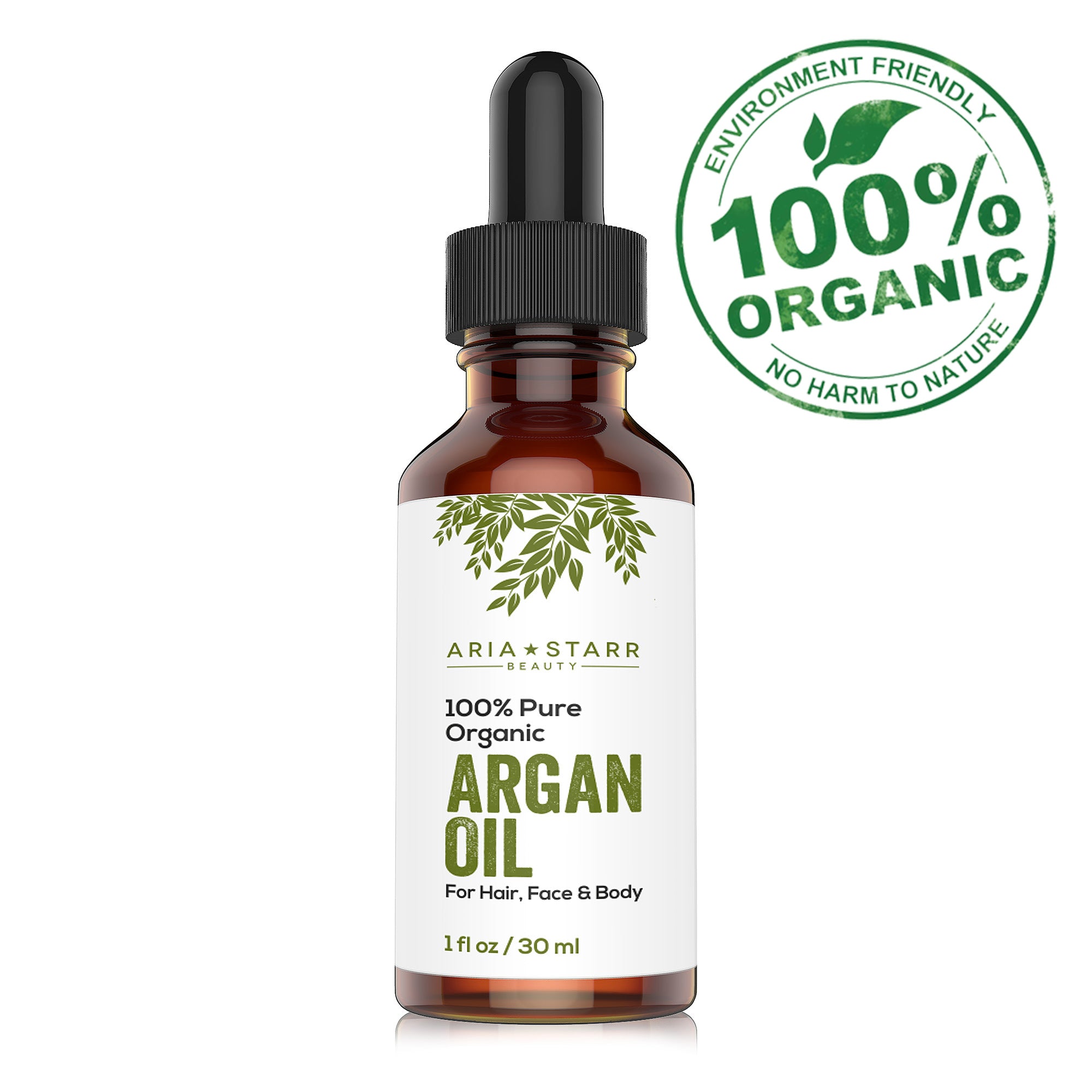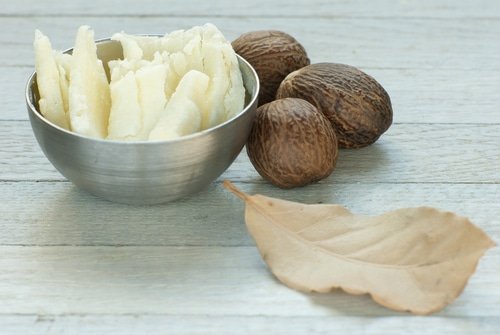The good news is that there’s still plenty of natural ways to make your skin − and your even hair, teeth or nails − look their best without needing to buy expensive and harmful commercial products. Women all over the world have been using natural skin care products for centuries and have some of the most admirable skin to show for it!
Start making over your beauty routine by trying these 13 natural skin care products:
1. Coconut Oil
One of the most versatile skin (and food) ingredients there is, coconut oil’s skin benefits include: strengthening underlying epidermal tissue, removing dead skin cells, protecting us from sunburns, and containing antibacterial, antiviral, anti-fungal and antioxidant properties. Research even shows that coconut oil is strong enough to fight chronic skin diseases characterized by defects in the epidermal barrier function and cutaneous inflammation, including atopic dermatitis (AD)
Use coconut oil on both your skin and hair to help cleanse, moisturize, remove makeup, heal wounds or scars quicker, and prevent razor burn. Coconut oil used internally is also beneficial for your looks. It contains antibacterial and anti-inflammatory properties, plus loads of healthy fats that help nourish your gut and increase immune function.
Healthy skin is just like any other organ in your body: It continuously needs oxygen and nutrients to be brought to the cells, and toxins need to be washed away. Therefore, coconut oil helping with hormonal and digestive function is crucial for optimal skin health.
2. Tea Tree Oil
Tea tree (Melaleuca alternifolia) has been used for hundreds of years in Australia to fight breakouts, redness and inflammation on the skin. While many people react harshly to typical acne treatment ingredients like acid, tea tree oil is usually well-tolerated and comes with few, if any, of the nasty side effects when combined with a carrier oil and applied directly to skin. Tea tree oil uses include working as a natural anti-inflammatory, anti-bacterial, antimicrobial and anti-fungal — its phytochemicals make it one of the most versatile and popular natural skin care essential oils there is.
Tea tree’s volatile essential oils come from approximately 230 different plant species, almost all of which are native to Australia. The primary active ingredients responsible for its ability to reduce harmful bacteria include terpene hydrocarbons, monoterpenes and sesquiterpenes. Researches have observed more than 100 different chemical components and volatile hydrocarbons that are considered aromatic and capable of traveling through air, pores of the skin and mucus membranes to provide healing benefits. It’s why tea tree oil is key part of the best home remedies for acne.
3. Apple Cider Vinegar
An extremely versatile and inexpensive natural skin care product, apple cider vinegar benefits include helping to kill pathogens (like bacteria), clearing skin problems caused by gut issues, cleansing the skin and helping to stop acne, plus providing antifungal properties. The use of ACV for skin problems dates all the way back to Hippocrates (460-377 BC), considered “the father of modern medicine” and a believer in the use of anti-fungal ACV and raw honey for cleaning ulcerations and treating skin sores.It also contains highly beneficial acetic acid and certain vitamins like potassium and magnesium that make it a detoxifying agent when consumed internally, since it boosts liver function and helps balance bacteria in the gut.
4. Raw Honey
Raw honey is one of the best natural sources of nutrients, enzymes, vitamins and skin-boosting acids. Benefits of raw honey include reducing breakouts, providing moisturizing properties, containing antiseptic qualities, encouraging wound healing, fighting allergies or rashes, and helping to reduce scars. Raw honey is unheated, unprocessed and unpasteurized unlike most honeys available in grocery stores. Therefore, it is able to keep all of its nutrients intact as they’re not destroyed by processing.
As an antimicrobial honey is particularly suitable as a dressing for wounds and burns. (3) It’s also been included in treatments used to heal bacterial infections, dandruff, diaper dermatitis, psoriasis and more.
Honey also makes a great homemade natural skin care product as an acne cure because it can be used in facial cleansers even on sensitive or mixed skin types. Take half a teaspoon, warm between hands and spread on face gently, leave on for 10 minutes then rinse with warm water and pat dry. To use it as an exfoliator for dry winter skin, try adding two cups of honey to a bath, soak for 15 minutes, then add one cup of baking soda for the final 15 minutes.

5. Sea Salt
Sea salt comes loaded with tons of minerals and nutrients like magnesium, calcium, sodium and potassium that it absorbs from the sea water where its produced. Many of these minerals are the same ones found in our skin cells and within our bodies, which is exactly why real sea salt can help balance, protect and restore the skin.Use real Himalayan or Celtic sea salts in homemade facial masks, toners and scrubs with other skin-boosting ingredients like coconut oil, lavender essential oil and raw honey. The salt contains anti-inflammatory properties to soothe skin and calm breakouts, remove dead skin cells and irritation, balance oil production, and help the skin retain moisture levels.
Make your own homemade scrub by mixing two teaspoons sea salt with four teaspoons raw honey, then apply the mix evenly to clean skin, rub it gently, let it stand for 15 minutes and rinse. Similarly, sugar scrubs are similar, and both types are gentle enough to use several times per week to prevent clogged pores and help with cell turn-over and renewal.
6. Avocado
An ultra-moisturizing fatty fruit, the benefits of avocados include containing vitamins A, D and E that are able to penetrate the skin. It helps soothe sunburned skin, can boost collagen production and treat age spots. It also works to reduce inflammation of the skin when applies topically and can do the same internally when eaten. Whip up a Homemade Avocado Face Mask with fresh avocado combined with essential oils, honey or a carrier oil to replenish hydration and leave skin feeling dewy
7. Lemon Essential Oil
With its strong antibacterial constituents capable of reducing even fatally dangerous bacteria strains, lemon essential oil can be used to diminish acne breakouts caused by high levels of bacteria stuck in pores. It’s also useful for fading scars and age spots, can exfoliate skin, brighten and lighten skin, tone oily skin and fight wrinkles.Lemon oil is one of the most versatile essential oils to have on hand because it can be used as a teeth whitener, laundry freshener, cellulite cream, face wash and household cleaner! Mix it with a carrier oil like jojoba oil and massage into troubled areas of the skin. You can also use it on your hair to boost shine and remove residue.
8. Argan Oil
Native to Morocco and used there for generations, argan oil is so healing because it’s rich in vitamin A and vitamin E, various antioxidants, omega-6 fatty acids and linoleic acid. Argan is not only great for gently moisturizing skin, but it also boosts the shine and health of your hair.Apply a small amount of argan oil directly to normal or troubled skin twice daily to help heal irritations such as acne, bug bites, eczema and psoriasis, leaving skin feeling and looking youthful.

9. Aloe Vera
Most people associate aloe vera benefits with healing sunburns, but did you know that aloe also contains bacteria-fighting, soothing ingredients that fight inflammation, redness and itching? For hundreds of years aloe has been used to treat skin diseases, infections and as a natural treatment for fungal diseases in traditional Chinese medicine.Recent research results suggest that aloe vera is effective for burns and wound healing, but surprisingly it also detoxifies you from the inside out. So much so that when taken orally, aloe can even decrease the number and size of tumors and parasites in the liver, spleen and bone marrow.
Aloe vera plants produce two substances used for medicine: the gel found in the cells in the center of the leaf, and the latex that’s obtained from the cells just beneath the leaves’ skin. These can be used as a natural skin care remedy for burns, frostbite, psoriasis and cold sores.
Aloe vera is considered to be the most biologically active form of the Aloe barbadensis miller species and holds more than 75 potentially active ingredients including anti-inflammatories, vitamins, minerals, saccharides, amino acids, fatty acids, enzymes, lignin and salicylic acids. There are what gives aloe its signature anti-microbial and antifungal properties that make it a “photodynamic therapy” for healing skin.
10. Jojoba Oil
One of the most widely used carrier oils, jojoba oil is extremely moisturizing and can help heal burns, sores, scars, dermatitis, acne psoriasis and wrinkles. Native to the southern U.S and Mexico, this oil has been used to treat acne, psoriasis, sunburn and chapped skin for generations. It’s also used to reduce balding because it encourages hair regrowth, soothes the skin and unclogs hair follicles.When it comes to the chemical structure of jojoba oil, it’s unique in that it’s a polyunsaturated wax. As a wax, jojoba oil is especially useful for protecting the skin, providing moisture control, and soothing the skin and hair.
11. Almond Oil
You probably already know about the many nutrition benefits of almonds, but maybe you’re new to using almond oil on your skin. Almond oil not only smells great, but it has anti-inflammatory, antiviral, antibacterial, and antiseptic properties. It makes a great carrier oil for essential oils to naturally treat skin rashes, acne or dryness. It also blends easily with many different smells, so try in it homemade washes, masks or lotions.
12. Shea Butter
Shea butter has been used as a natural skin care product in Africa for hundreds of years, where it is still largely cultivated and shipped around the world today. It makes an excellent moisturizing options for dry skin types and is inexpensive yet effective at reducing flaking, redness or peeling.Try it in a Homemade Skin Care Butter mixed with your favorite essential oils like frankincense, eucalyptus or bergamot oil or with lavender oil and mint in my homemade lip balm.



